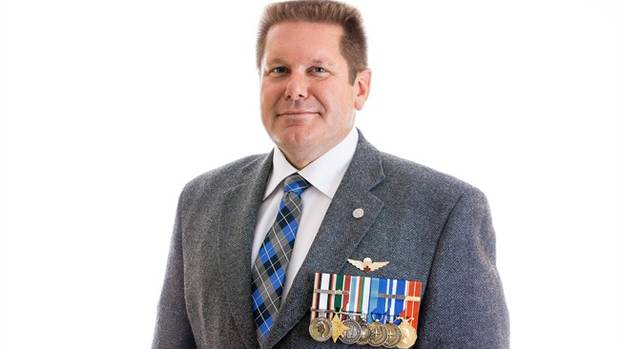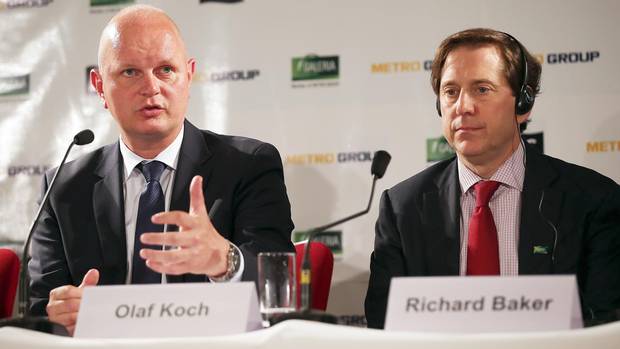Busy day? Here are five stories popular with Globe readers to help you catch up.
What climate change is doing in Western Canada
Western Canada is seeing signs of the changing climate that has brought a crippling drought to the U.S. West, Mark Hume reports.
Data collected by John Pomeroy, director of the Centre for Hydrology at the University of Saskatchewan, points to dramatically reduced river flows across B.C., Alberta and Saskatchewan this spring, meaning the shortage of runoff water could lead to drought across a vast region of Western Canada.
Pomeroy said Canada is not yet close to a disastrous situation such as the one currently happening in the U.S., which this year is expected to cause agricultural losses of $3-billion in California, $1.2-billion in Washington and an unknown amount in Oregon.
There is still reason to worry, however, because these conditions are linked to climate change and appear to be here for the long term.
“All our stations are free of snow now, which is the earliest we’ve seen it,” Pomeroy said. “Not only was the maximum of snow water available quite low, but the snow melted much earlier – about a month to a month and a half earlier than what we would expect.”
Last week, the town of Osoyoos began water restrictions because of concerns about the potential for drought in the South Okanagan. And alarms are being raised on Vancouver Island about extreme low water levels in the Cowichan River.

Veteran resigns N.S. candidacy in protest against Trudeau’s support for security bill
David MacLeod, the Canadian Forces veteran who was poised to run for the federal Liberals in the northern Nova Scotia riding of Central Scotia, has resigned as the candidate, Jane Taber reports. His “integrity-based decision” is over his opposition to Justin Trudeau's support for Bill C-51.
His decision underlines the damage that Mr. Trudeau and his caucus's support for the controversial security bill is doing to the Liberal Party and its brand as defender of human rights.
“As a soldier, I helped defend Canada’s democracy by participating in peacekeeping, peacemaking and war,” MacLeod, who served for 27 years in areas such as Afghanistan, Bosnia and Kosovo, wrote in a letter to Trudeau earlier this month. “Having opposed oppressive political systems in the name of Canadian democracy, I refuse to support any entity complicit in the creation of a repressive act which assaults Canadian liberty.”
MacLeod, who has read the entire bill, says that it provides a lot of “opportunity for abuse.”
The Liberals are now searching for a new candidate, and it will be an open nomination, says Kristan Hines, who is part of the Trudeau team in Nova Scotia.
Tories to roll out pre-election infrastructure spending spree
The Conservative government is preparing an infrastructure spending spree in the run-up to the fall election, as federal and provincial sources confirm work is heating up to announce new projects under the New Building Canada Fund.
A Globe and Mail analysis reveals that only about $1.2-billion of the $14-billion program has been rolled out, Bill Curry reports.
The breakdown shows that funds dedicated to larger projects have barely been touched, while small communities in Manitoba and New Brunswick are benefitting from the vast majority of approved projects.
A flurry of announcements by the Conservative party hope to bolster its image on the infrastructure file ahead of a campaign that is expected to focus heavily on issues such as traffic congestion and public transit.
The 10-year Building Canada fund has three sections:
- $4-billion is set aside as a National Infrastructure Component that is meant to focus on projects of a national significance that have"broad public benefits"
- $9-billion for"national and regional projects"
- $1-billion for a small-communities fund that is limited to municipalities with fewer than 100,000 residents
Of the 90 projects announced so far, 66 fall under the small-communities fund and represent just $55-million of the $1.2-billion that has so far been allocated.
The two national projects are worth a combined $68.7-million, while the remaining 22 projects under the provincial component are worth more than $1.1-billion.
Sudanese president Bashir leaves South Africa, despite court order
Sudan president Omar al-Bashir, wanted by the International Criminal Court on an arrest warrant for genocide and war-crimes charges in Darfur, left a South African military airport on Monday in defiance of a court order that banned his departure.
Unaware that Bashir had left, a Pretoria court ordered his arrest on the international warrant, but a government lawyer immediately announced that Sudan's president had left the country, Geoffrey York reports.
Government lawyer William Mokhari promised that the government would “fully investigate” how exactly Bashir had been able to leave.
Lawyers for the Southern Africa Litigation Centre, which launched the court action to seek Bashir’s arrest, said they will demand that the government be found in contempt of court for allowing Bashir to flee without trying to stop him.
“When Sudanese president Omar al-Bashir took off from South Africa today, he took with him the hopes of thousands of victims of grave crimes in Darfur who wish at last to see justice done,” said Elise Keppler, acting director of international justice at Human Rights Watch. “An opportunity was missed, but a clear message has been sent to Bashir that he is not safe from arrest.”

HBC’s $3.9-billion German deal both a test and a challenge
Hudson's Bay Co.'s $3.9-billion deal for a big German department store chain underscores chief Richard Baker's mission and challenge, Marina Strauss reports.
After Monday's takeover tapped into Mr. Baker's goal of snapping up retailers whose operations it can boost while taking advantage of the value of their real estate, his test now is to show HBC can execute its formula in a retail market such as Germany.
Toronto-based HBC gets its hands on Galeria Kaufhof and some prized real estate properties under the deal. It announced on Monday an agreement in principle with Simon Property Group, its U.S. real estate partner, to purchase at least 40 of Kaufhof's owned or partly-owned properties for at least $3.3-billion.
“This is the right investment at the right time,” Mr. Baker, governor and executive chairman of HBC, said in a statement.
Mr. Baker said HBC kept an eye on the European retail landscape for many years for a potential expansion opportunity and “watched Kaufhof build on its exceptional real estate” to become the number one department store player in Germany.
Jerry Storch, chief executive officer of HBC, said expanding HBC’s footprint into Europe with Kaufhof “provides us with a strong foundation to explore additional opportunities for growth throughout the continent.”